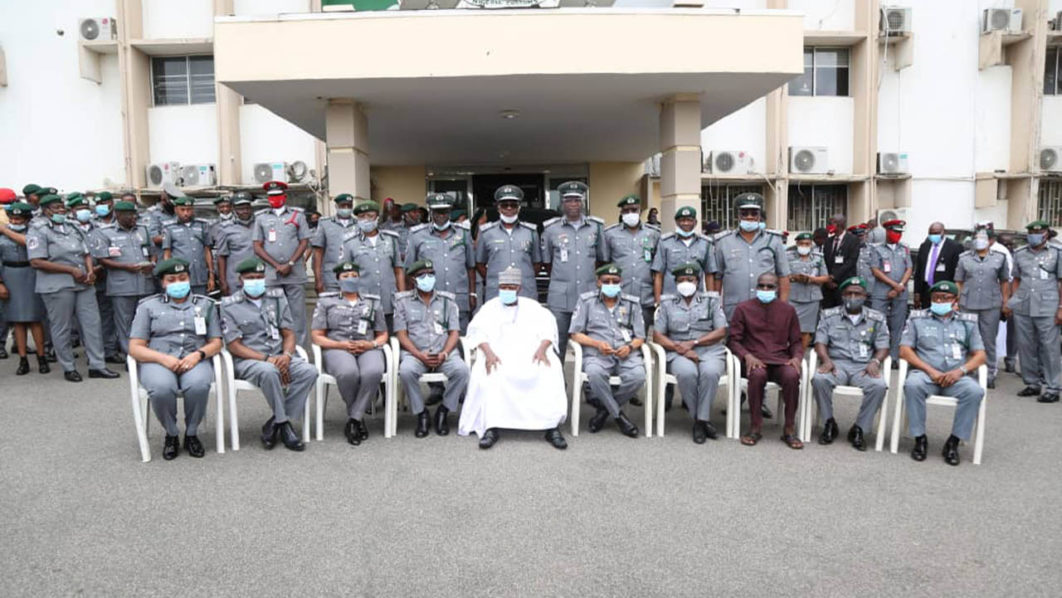
They stated this while deliberating on ‘Port Concession and Its Effect on Overtime Cargo’ at a maritime community platform, Harbour and Ports.
A member of the Association of Nigeria Licensed Customs Agents (ANLCA), John Ofobike, blamed overtime cargo for arbitrary documentation, processing, positioning of containers for examination and examination of cargo.
Former Director at the Nigerian Maritime Administration and Safety Agency (NIMASA), Abass Olayemi, said cargoes stay at the ports for several years because the Nigerian Ports Authority (NPA) did not evacuate them to designated terminals.
He accused the terminal operators, shipping companies, customs brokers, importers and other regulators of contributing to overtime cargo challenge.
Olayemi said they contribute in the following ways – failure on the part of importers to prepare financially for the shipment’s arrival, failure to comply with proper documentation as at when due or prior arrival of shipment and inability to provide requested documents as at time of arrival and when requested by Customs.
Others, according to him, are the inability to pay required duties and other charges, poor cargo handling operations and terminal congestion.
Olayemi stressed that proper collaboration and implementation of the Nigerian Port Process Manual (NPPM) would improve port operations.
Former National President of the National Association of Government Approved Freight Forwarders (NAGAFF), Eugene Nweke, recalled that the Nigeria Customs Service (NCS) introduced the pre-arrival documentation, which provided a window for documentation, at least two weeks before ship arrival.
He wondered why import documentation that followed such a process was still being trapped when they arrived. He blamed the challenge on poor enforcement of regulation and misrepresentation of ports detention centres than transit areas.
A maritime lecturer, Charles Okorefe, said: “We also have situations where some importers with contacts in high places and whose cargo carry very huge Duty elements, allow their goods to go into overtime. They go around to buy the same goods at auction at the most ridiculous rates. Some imports with duty rates of about N50 million, for instance, may end up being sold for less than N1 million. Who is the loser? The Federal Government, of course.”
A former Director at NIMASA, Capt. Enisouh Warredi, suggested that there should be a reduction of paperwork and agencies in the chain, noting that there are too many corridors and there might be a need for a serious redesign of the premises.
He also suggested the need to create dedicated environments for different types of cargoes, such as dangerous goods, refrigerated containers, 40ft boxes and 20ft boxes among others, depending on development.
He also suggested the need to bring in the latest equipment that can stack them higher, thereby giving ground room for easier transportation.
Warredi noted that the creation of a dedicated area for different imports would see cargoes requiring the least inspections leave the port immediately.
The Publisher of Pinnacle News Magazine, Eguono Odjegba, said the unending dispute between shippers and monitoring/revenue agencies of government often leads to abandonment of cargo.
Reacting, the Deputy National Public Relations Officer, NCS, Timi Bomode, said customs documentation had been fully automated, adding that positioning of containers is the responsibility of terminal operators.
He said a lot of importers spend days trying to pay shipping and terminal charges long after their goods have been released by Customs.
Bomodi said of over 2, 000 containers moved to Ikorodu Government Warehouse (GWH), no importer has attributed the delay in the ports to Customs activity or interference.






